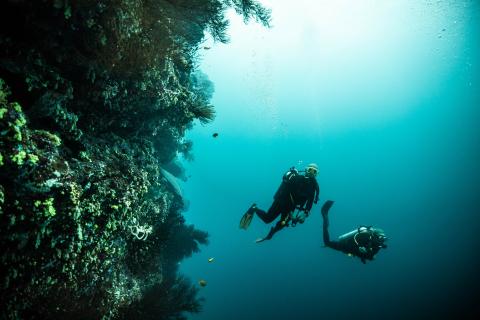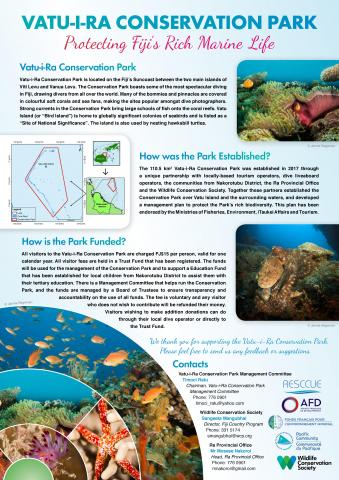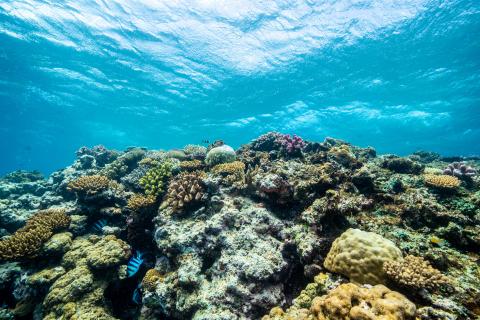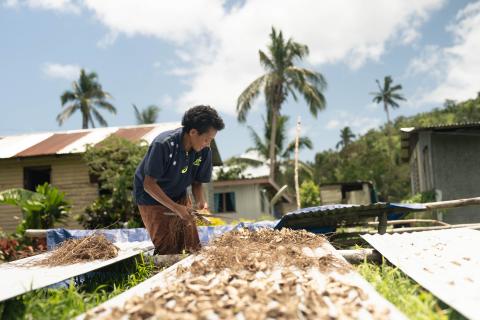
INNOVATIVE ECONOMIC AND FINANCIAL MECHANISMS
In Ra, RESCCUE conducted a feasibility study for economic and financial mechanisms to support ICM. It found that the main opportunity was a marine conservation agreement to financially support the proposed Vatu-i-Ra Conservation Park in partnership with local communities, the tourism sector, and WCS.
RESCCUE supported the development of the Vatu-i-Ra Conservation Park management plan (also available in Fijian) which was formally adopted by local communities as well as provincial and national authorities in May 2018, thereby establishing Fiji’s largest Marine Conservation Park.
In parallel, the project set up a marine conservation agreement to fund the management of the Conservation Park, through a voluntary contribution scheme:
- Divers and other visitors to the Park pay a voluntary contribution of FJ$15 (US$7) that is valid for a year.
- The revenue is then placed into a Trust Fund, with 30% of the fund allocated to support day-to-day management of the Conservation Park. The remainder is used to provide education grants to tertiary students from Nakorotubu District.
- The Conservation Park has a seven-member Management Committee that oversees the park’s management. A threemember Board of Trustees oversees the Trust Fund to ensure it complies with the terms of the Trust Deed.
The Marine Conservation Agreement and Trust Fund are fully oper-ational since October 2018. It is expected that the fund will contrib-ute to the conservation of this highly diverse area, protect the cultur-al and historical values that are important to local communities, and support education and community development in the Nakorotubu District.
In Kadavu, RESCCUE conducted an equivalent feasibility study, using results from a systematic household socio-economic survey conducted in 2016. The feasibility study highlighted the opportunities associated with promoting organic farming certification in Kadavu, and demonstrated the potential for a viable financial mechanism based on the sale of organic kava from Kadavu (primarily to the export market).
However, the currently high Kava demand in Fiji and a significant increase in Kava price following tropical cyclones Winston in 2016 and Keni in 2018 reduced attractiveness of export and organic premium for farmers. Nevertheless, in collaboration with SPREP Pacific Ecosystem-Based Adaptation to Climate Change (PEBACC) project, a “Kadavu Going Organic” Action Plan was developed and is currently being implemented by local stakeholders. The plan will likely require more financial and external support in the coming years.



